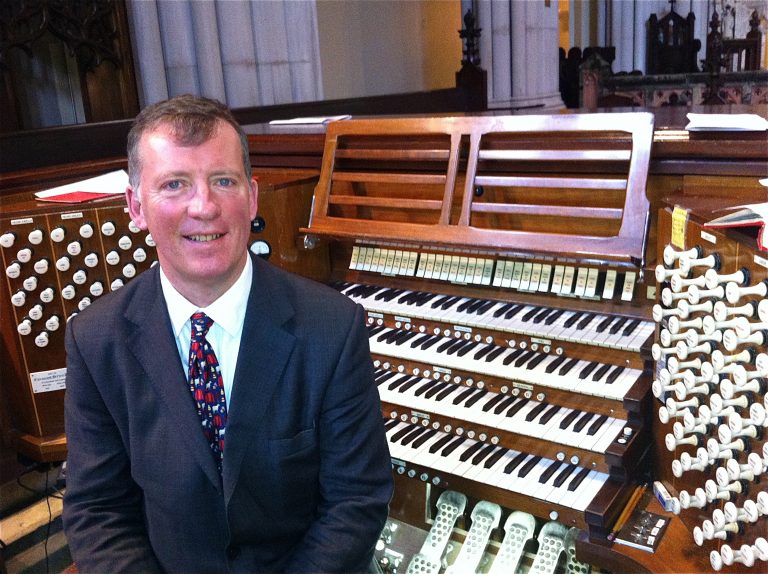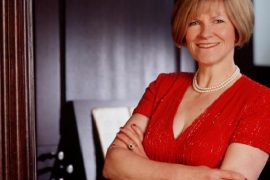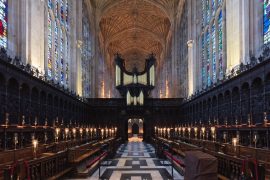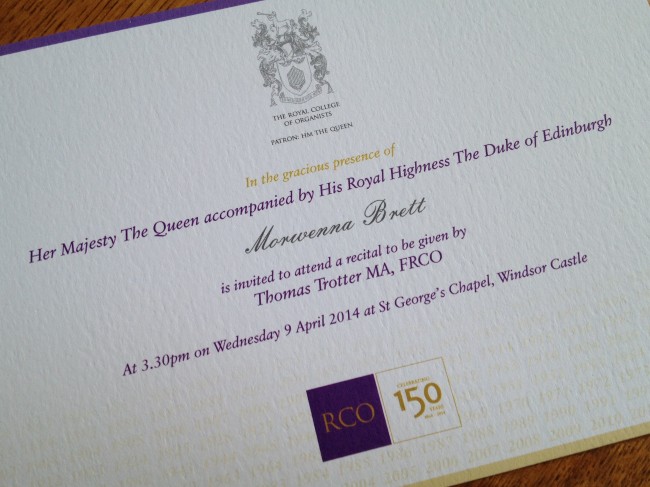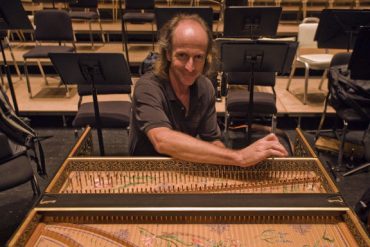Gerard Brooks is the new President of the Royal College of Organists from this July. Students of the Royal College of Organists have appreciated his teaching for many years of course – one of the very first posts I wrote on this blog (nearly seven years ago, when I was a very newbie organist) was an account of an RCO class given by Gerard on the newly-rebuilt organ at Methodist Central Hall in London, where he is Director of Music.
Gerard is particularly known for his award-winning recordings of French repertoire. He’s Curator Organist of the reconstructed Bridge organ at Christ Church Spitalfields: his recent recordings of 18th century music there got five star reviews in both Choir and Organ and Organists Review.
More details below, including a link to his forthcoming concert schedule, which includes a Royal Festival Hall recital in 2020. In the meantime, here are Gerard’s answers to my five questions:
Which piece of music are you studying at the moment and why?
I have several pieces on the go but perhaps the most important is reworking Widor’s Fifth Symphony for a concerts in the coming year. I’ve played it quite a few times but I never tire of it. Something new for me recently was Dupré’s Prelude and Fugue in Ab. It’s a wonderfully evocative work, quite academic in character but with the most breath-taking final page of any piece I know. As a student I used to listen to it on a recording by Dupré himself late at night whilst trying to write essays…
What has been your best experience as an organist?
Over the years I have had the opportunity on several occasions to play and even record on the Cavaillé-Coll organ in St. Ouen in Rouen. Widor described this instrument as a ‘Michelangelo of an organ’ and it never disappoints: more than any of his instruments it demonstrates Cavaillé-Coll’s mastery of tonal design. It’s an instrument where organ, building and acoustic have come together in a magical way.
What has been your worst experience as an organist?
I once went to a small town in Germany to give a concert on a historic organ. The organist had told me the compass of the pedals stopped at D. What I had failed to realise was that it stopped at middle D – in other words there was only a single octave of pedals! I had to try and adapt music with a full pedal part as best as I could….
What’s the best piece of advice you were given by an organ teacher? (and who was it?)
Daniel Roth told me that one has to accept that in a performance there will always be something that doesn’t go according to plan, but that the degree to which one’s performance falls short is directly related to the amount of time spent in preparation!
What would be your own best piece of advice for student organists?
Once you have thoroughly learned a piece (and it’s worth saying that you only really know it if, ideally, you’ve had the time to memorise it) then the challenge is to communicate your love of it to your audience. The composer has given you the vehicle, but you must drive it and make them sit up!
Gerard Brooks is a concert organist and teacher: an organ professor at The Royal Academy of Music in London, and founding Director of the London Organ Improvisation Course. He has contributed many articles to musical journals as well as writing the chapter on French and Belgian organ music for the Cambridge Companion to the Organ. His recordings on the Priory label have all been broadcast on national radio and include the complete works of Eugène Gigout played on historic organs in France on five CDs, the first of which was voted an Editor’s Choice in Gramophone magazine. He has also recorded the complete organ music of Saint-Saëns and is the presenter and one of the featured organists on the Fugue State Films DVD The Genius of Cavaillé-Coll which won the BBC Music Magazine Award for Best Documentary in 2014, and on Widor: Master of the Organ Symphony (reviewed in 2015 below).
The CDs and DVDs are available in his website shop, along with his forthcoming concert diary.

